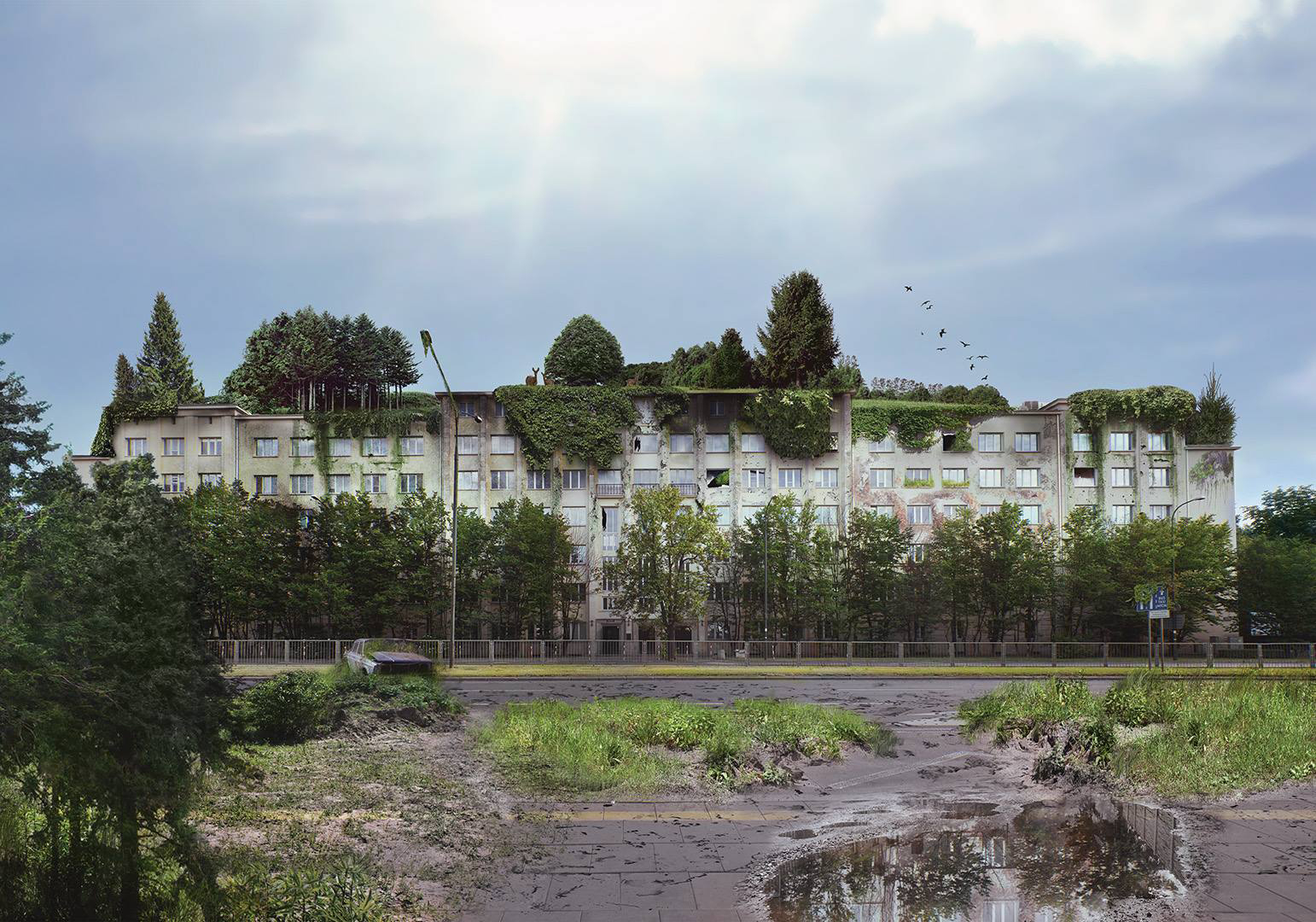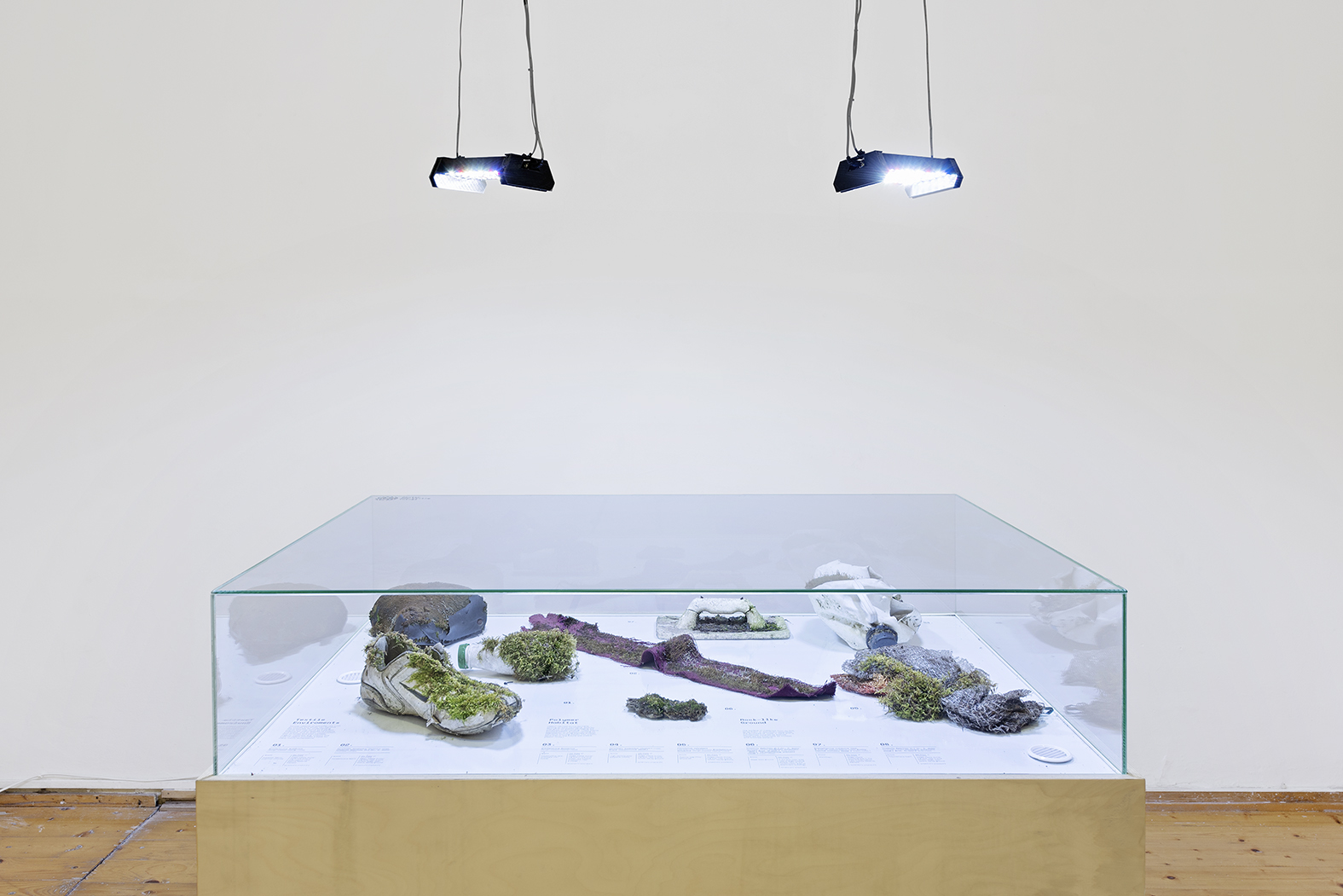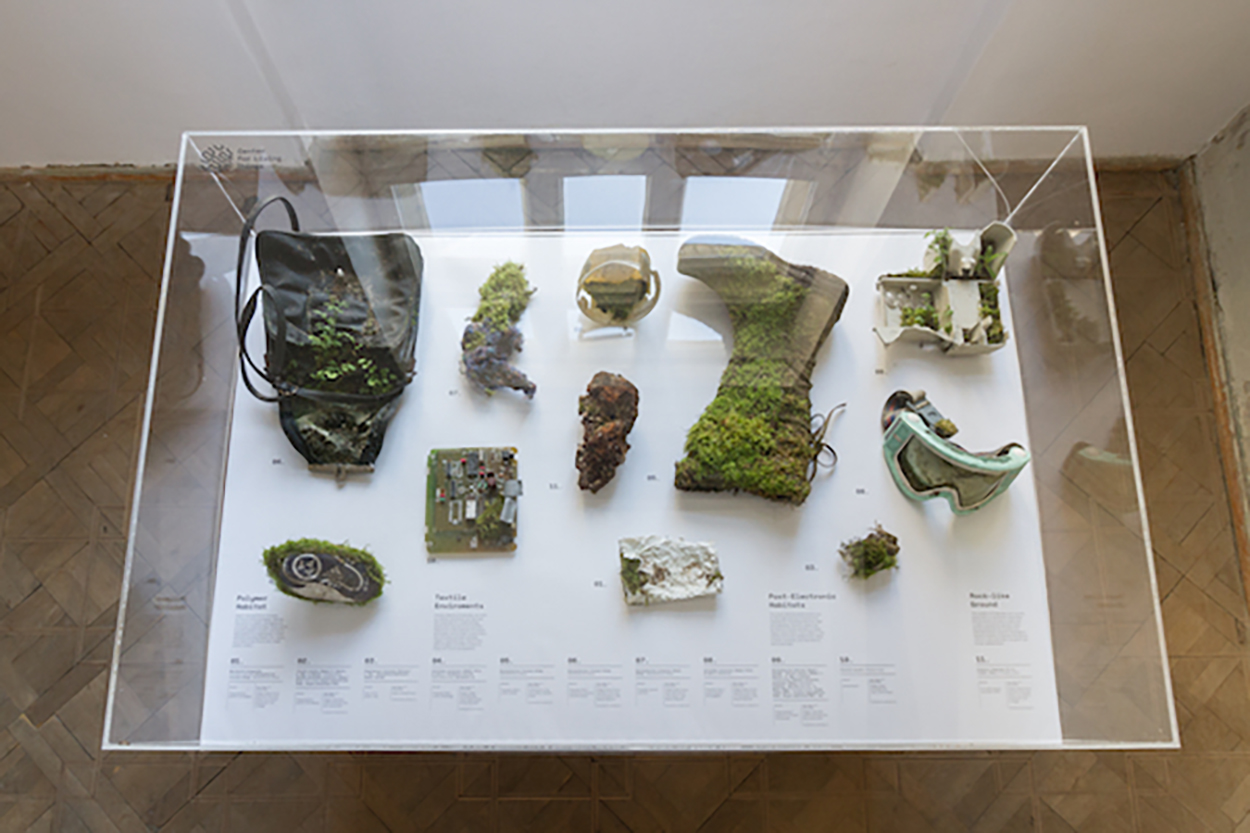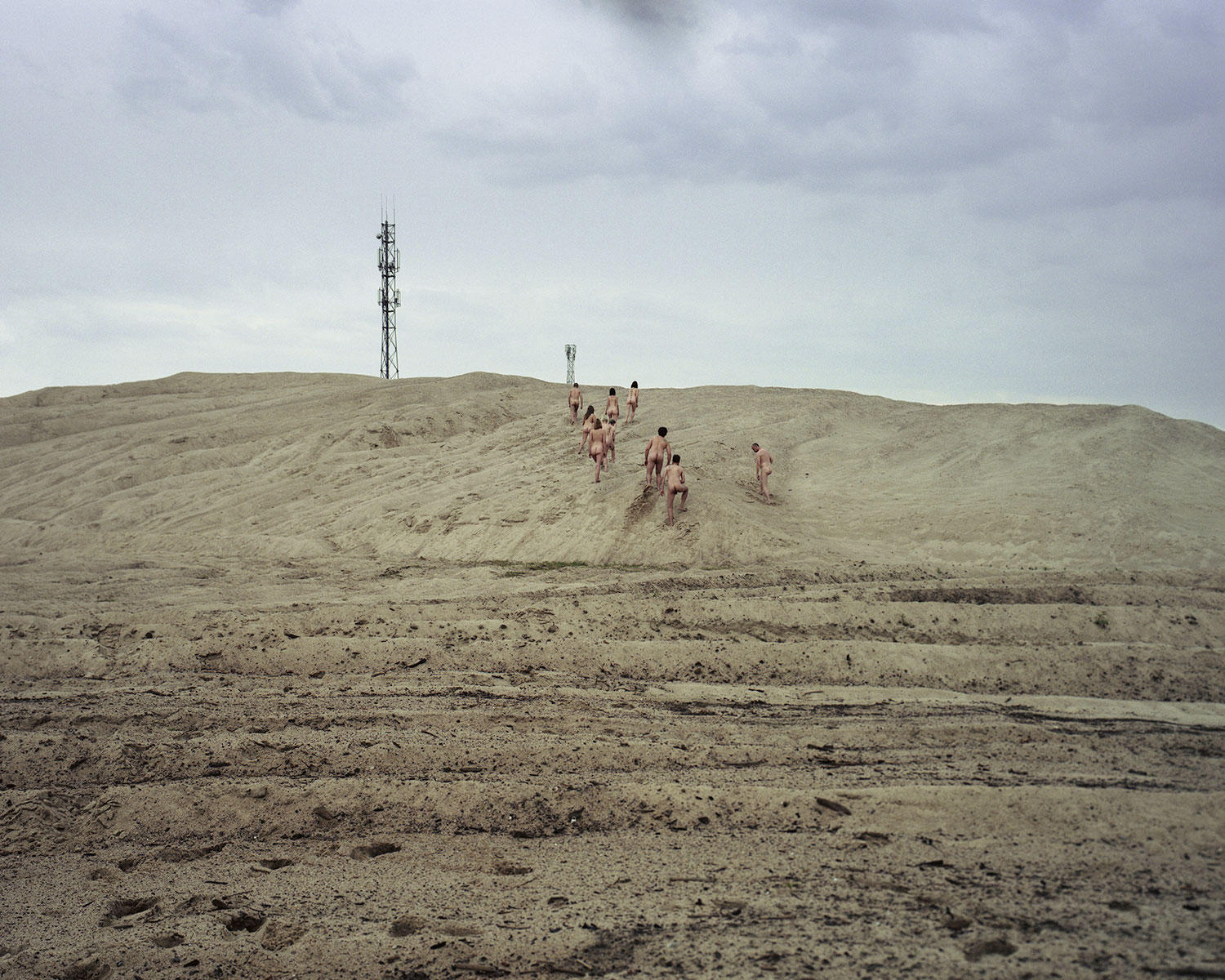“Ecosystems had a moment to breathe before everything soon recovered to return to how it was before. Meanwhile, a bigger crisis is waiting around the corner.” – An interview with Polish artist Diana Lelonek
Polish artist Diana Lelonek explores relationships between humans and other species. Her projects are critical responses to the processes of overproduction, unlimited growth, and our approach to the environment. She uses photography, living matter, and found objects, creating work that is interdisciplinary and often positioned at the interface of art and science.
Diana Lelonek
Diana Lelonek (PL) was born in 1988. She graduated from the department of Photography at the Faculty of Multimedia Communication and completed her PhD in Interdisciplinary PhD Studies, both at the University of Art in Poznań.
Diana Lelonek explores relationships between humans and other species. Her projects are critical responses to the processes of over-production, unlimited growth, and our approach to the environment. She uses photography, living matter, and found objects, creating work that is interdisciplinary and often appears at the interface of art and science.
She participated in several international biennials and other festivals, and group shows.
Photo: © Yulia Krivich, commissioned by Szum Magazine
Diana Lelonek is one of the artists invited to participate in the exhibition Slow life. Radical Practices of the Everyday, a show in the Ludwig Museum – Museum of Contemporary Art Budapest that could not yet be realised due to the COVID-19 crisis. This interview was originally published on a microsite that currently replaces the physical show.
How will the coronavirus pandemic affect your artistic practice and your daily life?
I have anxiety disorders, so the pandemic is not an easy time for me. I’m really worried about my family and the future. Staying in a small, rented apartment in the centre of Warsaw during the quarantine has been really hard for me.
I live next to the parliament building where there was a strong police presence; they checked everyone. I spent almost three months in one room that I share with my boyfriend. We don’t have a balcony, so I started to squat a small garden which I found next to our apartment building. It is a private area, so it was possible to go there even during the lockdown. Nobody has used it for years. I decided to start growing some plants and flowers there. I met a cat that lives there and started to feed it. I think this garden and the cat helped me survive this difficult time.
The political situation in Poland during the COVID-19 crisis is scary. On 15 April, during the quarantine and in the middle of the pandemic, the Polish government decided to vote to introduce a complete abortion ban. Normally, every time when they try to push this horrible law through parliament, thousands of people go out on the streets to protest against it. But this time, during lockdown, any kind of protest was illegal. Regardless, women found some legal loopholes and tried to protest anyway: for example, protesting in cars, or holding banners while waiting in a long queue in front of the shop next to the parliament building, etc.
For me, the most important thing at demonstrations is shouting together, but this was not possible as gathering is banned. That is why I decided to invite women to gather online, so that our shouting could sound together anyway. I received about one hundred recordings of women, men, and children chanting the sentence: “Fight the virus, not women” [“Walczcie z wirusem, nie z kobietami”] and a few other slogans that we usually shout at protests outside parliament.

“Ministry of the Environment overgrown by Central European mixed forest”. Digital collage, billboard and photograph 100x150cm, June 2017. © Diana Lelonek
My friend, artist Edka Jarząb, and I edited a track of the assembled recordings. In this way, a recording of a demonstration that never took place in a physical form was created. The day parliament voted for the law, the recording of protesters shouting was played from windows and balconies, from cars, and on the way to the shop (also next to the parliament building). And thanks to that we could all shout together and our voice was heard. I think that such a “speaker protest” can be an effective tool for protesting when gathering is prohibited.
A few days ago, I left Warsaw for the first time since the beginning of March. I am currently at a friend’s house in the countryside and I finally feel that the stress and tension associated with the current situation are starting to fade away.
Do you think you will have a different attitude to life and art when this crisis is over?
I don’t know yet how this pandemic will affect my life. It is difficult to say anything at the moment. I have both negative and positive thoughts on the potential effects. Certainly, this virus emerged at a time when the world dramatically needed a change. We lived in such a terrible rush and overproduction that sooner or later something had to happen to stop it. Last year in climate change movements, we postulated a reduction in consumption and a reduction in flights. Now all this has stopped – not by the will of people, but through the “decision” of a microorganism. My solo show in Rome, Buona Fortuna, has been closed for three months because of the coronavirus.
Next week [end of June, editor’s note], it will be open again at last. I have a strange feeling when I think of this show, which talks about the disaster caused by our arrogant approach to the planet through a series of “Zoe-Therapy” works in which bacteria take revenge for human dominance… and finally a real virus unexpectedly emerges and the show gets closed for three months… When we discussed the title with curator Kuba Gawkowski a few weeks before the opening, this irony of Buona Fortuna was as important for us as the hope visible in the exhibition. I feel that this virus is the last call for change. We can’t miss the chance. The world as it was will probably not come back. The question is in what ways it will change. It could change for the better – a pandemic can be a chance to look for and implement new economic solutions and models. Unfortunately, I’m afraid that the first real effect, which will soon emerge, will be a radical deepening of class differences. I’m also worried about our freedom and the future of democracy.

Diana Lelonek, exhibition view: “Buona Fortuna”, Fondazione Pastificio Cerere, Róma/Rome, 2020. Photo: © Andrea Veneri
When it comes to art – well, I think it will be difficult. Almost all exhibitions, conferences, debates and festivals I planned for this year have been cancelled. Artists received practically no support from the state. Post-pandemic public funding of the arts and culture is likely to be much poorer. Institutions are already experiencing cuts to their funding, and this can result in a lack of salaries for artists. The many years we spent trying to receive a fair payment for our labour and ensuring exhibition fees might get lost. Recently, I heard an interview in which a well-known Polish actor (a very well-off person) said that artists would manage because “a hungry artist is a prolific artist.” Unfortunately, this myth still persists within our society.
The second issue – employees in the cultural sector are to a large extent employed on zero-hour contracts or contracts that pay little and provide neither stability nor social security (civil law contracts used in a pathological way); they are currently deprived of income, and this will not revert to the previous state even after the restrictions are removed – it may get worse for cultural workers than it ever was.
In what way do you think this virus has fundamentally changed our lives? Has it changed our lives at all? What can we learn from the pandemic?
As I mentioned earlier, I think that our lives will change mainly due to economic crisis – the coronavirus effect.
Following the pandemic, most people will suffer from poverty, the loss of their jobs or homes, debt, (it is already expected that many people will fall behind with their mortgage payments within the next three months), so the level of housing loss and unemployment will increase. Personally, I have a problem with people who disseminate positive visions of a wonderful post-pandemic world; these are usually privileged people who own their flats and spend the quarantine practicing yoga on spacious patios and “travel deep” within themselves. On social media, many middle-class people talk about how quarantine has allowed them to see the real, meaningful values in life… To be honest, I cannot listen to this type of statements anymore. Real life looks like this: In Poland, most people are cramped in tiny, mortgaged apartments, or in apartments rented privately at very high rents. I do hope that as a result of the coronavirus the real estate bubble will burst.

Diana Lelonek: “Center For Living Things”. Installation view, exhibition “Zeitgeist” at lokal_30 gallery, Warsaw, 2017. Photo: © Marcin Liminowicz; Courtesy of lokal_30
The pandemic may certainly provide the chance to introduce changes that would not have taken place otherwise. The world has stopped, and it should not return to the way it worked before. We now have the chance to introduce other economic models, models that would put an end to the exploitation of planetary ecosystems, of industrial farming, increasing the importance of small farms, locality, cooperation, reducing production, and slowing down life. However, this all sounds too utopian. And I don’t think it will happen. Ecosystems had a moment to breathe before everything soon recovered to return to how it was before. Meanwhile, a bigger crisis is waiting around the corner – the climate crisis. In the long run, this will be much more threatening than the pandemic.
Do you think that art has the means to effect social change? And if so, then in what ways?
I think that art has such a potential, but it doesn’t really have the power to break through on a larger scale. Such tools are available to politicians, not artists. We can continue our grassroots activities, do engaged, political art. Our voice is important. Certainly, art provides tools that can help us come up with alternatives. This is already on its way: think tanks that include both theoreticians and artists are already being formed. Nevertheless, these are still micro-scale activities. According to public opinion, art is superfluous and something that is not worth our support during the crisis and is the first thing that can disappear as an unnecessary luxury.

Untitled, from the series “Yesterday I met a really wild man”, (100×70; 100×120), 2015. © Diana Lelonek
When it comes to art to provide a response to the current political and social reality, I think that it has great potential in the current situation. However, I am afraid of repressions of the kind that artists have recently experienced in Warsaw. A week ago [in May, editor’s note], a group of Polish artists performed a happening near the parliament building as a commentary on the government’s actions regarding the organisation of the presidential elections during the pandemic. The artists were doing their job – it was a performative action, and they obeyed the current laws (keeping the appropriate distance and wearing masks). Regardless of this, they were punished with high fines for performing art, which was a critical commentary on reality.
First published on 3 June 2020 on slowlife.ludwigmuseum.hu and on 16 June 2020 on Artportal.hu for East Art Mags.
This text is protected by copyright: © Jan Elantkowski. If you are interested in republication, please contact the editorial team.
Copyright information on pictures, graphics and videos are noted directly at the illustrations. Cover picture: Diana Lelonek, Photo: © Paweł Błęcki / Culture.pl